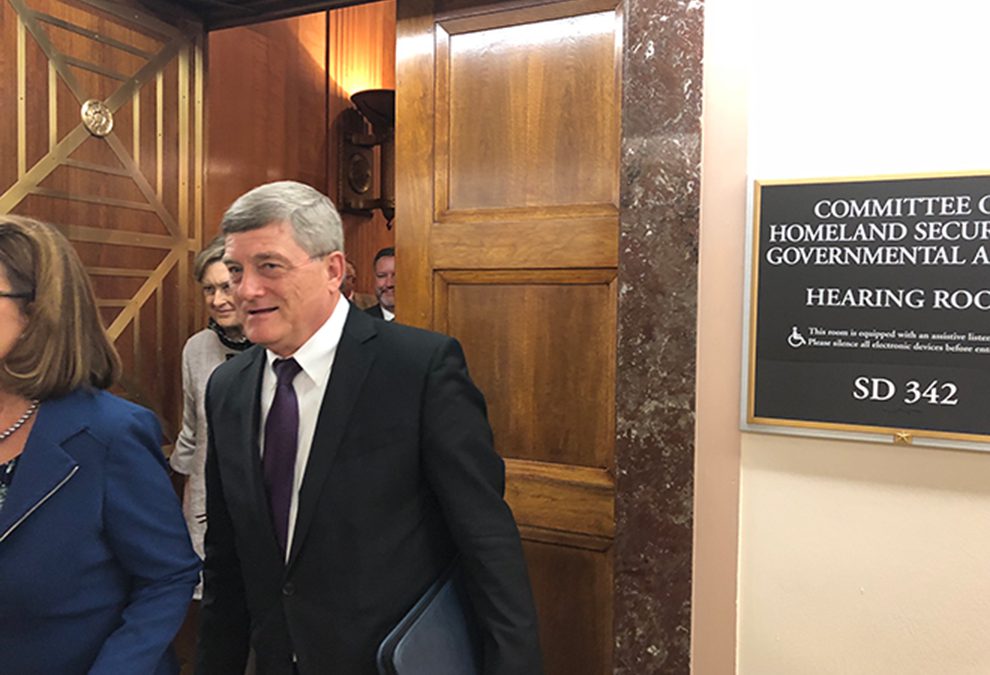WASHINGTON — President Donald Trump’s nominee to head the U.S. Census Bureau told a Senate committee on Wednesday that he would be “independent from improper influences” in conducting the 2020 census, which for the first time in decades will ask whether people are citizens.
The Trump administration added the question to the census, but a number of states are suing to have it removed, fearing it will depress the tally because noncitizens might not want to answer and, therefore, would not be counted.
Steven Dillingham told the Senate Committee on Homeland Security and Governmental Affairs he would remain impartial in ensuring accuracy and in holding costs at a reasonable level, but he did not specifically mention the citizenship question.
“I pledge to support a federal statistical agency culture of principles and practices grounded in relevance to policy issues, credibility among data users, trust among data providers,” said Dillingham in an opening statement.
Sen. Steve Daines, R-Mont., pressed him by asking, “Do you support including the citizenship on the census?”
“My responsibility, if confirmed, is to administer the census in accordance consistent with the (Supreme) Court’s decision,” said Dillingham. “It would be problematic to take a public position on that question.”
Committee Chairman Ron Johnson, R-Wis., and Missouri Sen. Claire McCaskill, the top Democrat on the committee said they want to quickly fill the bureau’s director position, which has been vacant for more than a year.
Sen. Kamala Harris, D-Calif., asked whether there is testing before new questions are added to the census and suggested more Senate oversight of the census is needed.
“A roundtable briefing is not the same as an oversight hearing,” said Harris. “Should you be confirmed, Mr. Dillingham, I hope that this committee will have you here .. shortly for an oversight hearing to discuss the wide range of 2020 census concerns.”
The citizenship question is a political issue as well as a funding issue for the Census Bureau. Dillingham underscored that an inaccurate census count could cost the bureau more money and resources if the count needs correction.
“It would increase field work for the nonresponse follow-up effort,” John H. Thompson, the former director of the U.S. Census Bureau, said in an interview.
A poll by the opinion research group Latino Decisions shows that 79 percent of registered Latino voters fear that their information will be shared with the Immigration and Customs Enforcement agency.
Thompson said outreach by the bureau and community leaders is critical to gaining people’s trust.
“The important part is getting the word out that the census is confidential,” he said.

